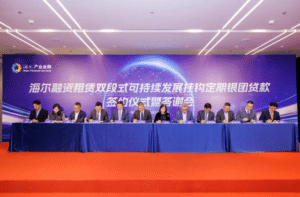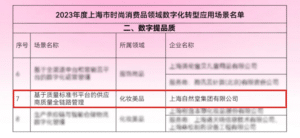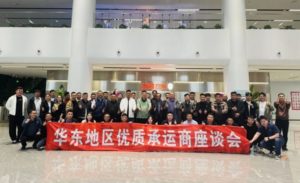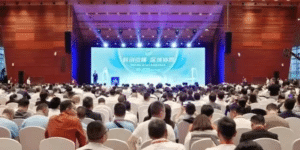Europe will follow in the footsteps of the United States and intends to introduce new regulations to restrict investment in China’s technology sector
[ad_1]
After US President Biden signed an executive order this month to restrict investment in China’s high-tech sector, Brussels is closely monitoring the development of the situation. The EU intends to introduce similar measures and maintain contact with the White House. There are reports that the European Commission intends to present the initiative before the end of this year. In June this year, the European Commission released an economic security strategy aimed at reducing risks, which includes a foreign investment review mechanism to prevent the outflow of sensitive technologies and their use in the military field. The order recently issued by the United States prohibits American private equity and venture capital funds from investing in China’s three fields: semiconductors and microelectronics, quantum information technology, and certain artificial intelligence systems. According to the regulation, the U.S. government can screen out specific transactions of individual companies with China. The new regulations introduced by the United States have caused dissatisfaction in China. The United States believes that the scope of the new regulations is very narrow, and the regulatory power of the US government will expand. Analysts believe that this will further affect the already cold relationship between the United States and China. It is expected that private equity and venture capital transactions in China’s high-tech sector will be subject to strict scrutiny in the future, and the United States will determine the implementation rules for specific industries in the next few months. At the G7 summit in May this year, the Biden administration communicated with allies on this issue, hoping that these countries can introduce similar measures. Europe’s response Against the background of increasingly fierce competition between the two major economies of the United States and China, Europe, as a traditional ally of the United States, regards reducing risks and reducing its economic dependence on China as an important goal of maintaining its own security. However, since European companies have invested heavily in China, countries differ in formulating specific measures for economic security. At the same time, the governments of EU member states sometimes face different opinions from companies. The “Financial Times” reported that after the Biden administration announced the executive order, the German Ministry of Economy stated that Germany will “actively participate” in the discussion of what measures the EU will take. In France, neither the Elysee Palace nor the French Economy Ministry commented. The newspaper quoted an EU diplomat as saying that some member states had reservations, arguing that the document would need to be assessed before it could be issued because it would have a significant impact on business. Also, since there are fewer venture capital funds in Europe than in the US, the approach will be different. Tobias Gehrke, a policy analyst at the European Council on Foreign Relations, said European governments were taking the issue seriously and would start discussing it in September, starting with To point out possible risks, it is possible for Europe to draw up a list of key technologies. “First of all I think the EU member states are not clear about what are the risks and how big are those risks, so there is a considerable need for a better understanding of the data and the evidence. So I think the EU will start to gather evidence or avenues of analysis if this is going to happen in the future become a mechanism for foreign investment screening.” Francesco Galietti, visiting professor at LUISS Guido Carli University of Rome International Social Sciences (LUISS Guido Carli) and founder of Policy Sonar, a policy risk consulting firm, believes that the future of Europe and the United States There will not be a big difference with regard to investment restrictions on China’s high-tech industries. “Semiconductors, artificial intelligence and quantum computing are key areas, all of which were developed after extensive consultations between the EU and the US, so You can be sure that the European approach will be very similar to that of the United States.” Tobias Gerke said that in the field of semiconductors and quantum computing, the EU will undoubtedly take restrictive measures. For example, the Dutch government and the EU know the semiconductor industry and its value chain, but the situation in the field of artificial intelligence will be more complicated. He believes that the focus of debate in the United States is not capital, but the knowledge that comes with investment. “The knowledge and know-how of investment managers and people who know the industry, the relationships they have that usually come with venture capital. There’s a lot of venture capital in the U.S., and there’s less of an argument like that in Europe because we don’t have a lot of that capital going to China. Europe The capital flow to China is more traditional foreign direct investment. The risk is different, maybe we have until some Europeans are saying, we have a different risk profile. We need to assess our own risk, which may not be the same as the United States .” Europe on the sidelines? A commentary in the English-language version of the Chinese state-run Global Times said that due to economic ties and bilateral relations, Europe is unlikely to comply with the U.S. investment ban on China. The article believes that the two major European countries, France and Germany, will not comply with the decoupling move of the United States. Such restrictions will cause huge damage to their own technology industries and derail their development. “Global Times” quoted Cui Hongjian, director of the European Institute of the China Institute of International Studies, as saying that Europe is obviously in a wait-and-see mode, and it is difficult for Europe to reach a unified ban in the short term. Cui Hongjian believes that Europe will first assess whether this ban will have a negative spillover effect on Europe, and at the same time consider the overall pattern of existing investment between China and Europe, and whether this decision will affect China-EU relations, because Europe is the main source of investment in China. Origin. Francesco Galletti wrote in an emailed response: So far, the courses of action of the US and EU have been well coordinated, and one can feel how frustrated China is that it cannot take advantage of European and American differences. Tobias Gerke said that China has some technologies that the United States and Europe rely on, and the restrictive measures may lead to the risk of China’s countermeasures, but the United States still made such a decision. In Europe, there has been opposition within the industry because Europe relies on exports and foreign market access. Industry stakeholders worry about overjurisdiction and that national security considerations have less to do with national security and more to do with industrial policy. In April this year, French President Emmanuel Macron led a high-profile business delegation to China to seek more opportunities for economic cooperation. French Finance Minister Bruno Le Maire declined to comment on U.S. restrictions on technology transfers to China during a visit to China in late July, adding that France opposed the decoupling of global supply chains. Germany’s national security strategy was delayed due to disagreements during the formulation of the national security strategy. At present, the EU has proposed the goal of reducing dependence on China for strategic industries, but it is not easy to restructure the supply chain in the short term. Just in July, China announced export controls on gallium and germanium, two rare earth metals. At present, in Europe, batteries for manufacturing electric vehicles rely heavily on imports from China. Chinese electric vehicle brands have begun to occupy the European market. Under the background of energy transformation, Chinese car companies have seized the opportunity. At the end of July, Volkswagen acquired about 5% of the equity of Chinese car company Xiaopeng Motors for US$700 million. The two parties will cooperate to develop new models for the Chinese market. In 2018, former Apple employee Zhang Xiaolang was accused of stealing Apple’s technology related to self-driving cars. Zhang Xiaolang originally planned to return to China to work for Xiaopeng Motors. He was arrested by the US police after going through security checks at San Jose Airport. In 2022, Zhang Xiaolang admitted to the U.S. federal court the act of stealing trade secrets, while Xiaopeng Motors denied any connection with the case.
[ad_2]
Source link







